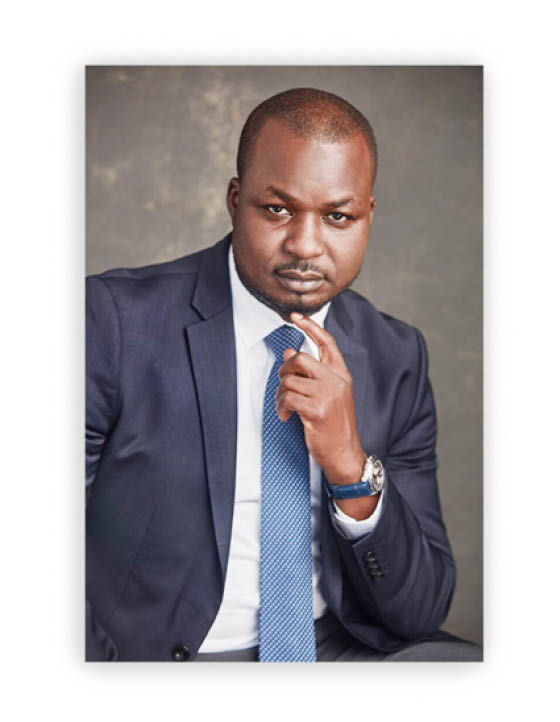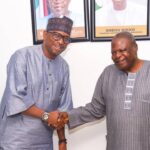Umar Abdullahi is the Chief Executive Officer (COE) of Cosgrove Investment Limited. In this interview, he speaks on the real estate sector and some modern and innovative housing solutions the company is undertaking.
What is Cosgrove all about?
Cosgrove is an indigenous real estate development company with headquarters in Abuja. We are basically into residential and commercial real estate. It was established in 2017. The company is new, but of course people behind it are not new in the industry. They are well respected professionals with decades of experience in the real estate market.
We observe what is happening in the market in the sense of what people want. First of all, you have to understand that real estate is not only a product industry; it is also a service industry. So, that’s what we’re trying to rekindle by giving clients what they deserve.
What others do is that they just build and sell without adding value, but what we do comes with added value.
Right now we are number one when it comes to investment in Research and Development (R&D), that’s why automation is coming into the market space globally. You know, there’s no border now between countries. So, home automation is a global trend. It used to be industrial automation, but now it’s coming to the level of home automation. Automation is all about security, convenience, energy management and entertainment. It is leveraging on technology to make your life safer and more convenient.
We have been a forward-thinking company, we look at global trends; what is coming into our market, and that is why we are the pioneers in terms of this automation in estates. You can go around and find that it is just a few people that are having home automation in their houses, but I have never come across a complete estate that is smart. Cosgrove will be the first to take the lead in that direction.
As I said, we have invested so much in terms of R&D and we have travelled widely to see what they are doing in other countries, and now we are bringing it to Nigeria.
What are some of your flagship projects and how has the reception from prospective home owners been like?
We have a project at Wuye/Utako. It is about 160 units premium houses, and they have completely been sold out. We have another project at Mabushi; that one too is fully sold out, and we have another estate at Guzape, also fully sold out. Then we have the biggest, which is about 12 hectares, directly opposite Ministers’ Hill, Maitama, where we are going to build about 370 units. We have started construction and they have already been sold out. All the estates we started were sold under two months even before we mobilised to site.
How were you able to achieve this?
That tells you a lot about us; the people behind the brand, and like I said, we are not new in the market. We have been in the industry for decades, so people know what we are capable of doing. Now, we have 23 hectares directly opposite the project in Maitama that we are going to launch after we have gone far in delivering this (Maitama). Even that one, people are already bringing deposits to lock-in the price (book for a house) in the second phase that we have not officially launched.
What is your assessment of the real estate/property market so far?
If you look at it, there was a boom from 2010 after the 2008 recession; things picked up. Oil was selling at over $100 a barrel and the economy was good. However, in 2014, recession came, oil nosedived to less than $30 per barrel from more than $100. All of a sudden the whole economy went into recession and this also affected the real industry. But after a year or two; from 2017, Nigeria started coming out of recession. And so far so good the economy is doing very well.
In fact, I was having a discussion with the CEO of Lafarge (one of our suppliers) who told me they have actually noticed the boom in the economy now compared to 2016, when they had to scale down.
We see so many empty houses in Abuja, why is this so?
It depends on the kind of development you are doing. We have speculative demand, that is people that will build a house, price it and then keep it; mostly for whatever reason. But we are dealing with real demand; our houses are tailored for people that are looking for decent and premium accommodation.
Which calibre of people are your houses for?
In Nigeria, let me put it this way, two decades ago, what we had was upper class, and then those below, but now, from 2000 we saw the emergence of the middle class as a result of the springing up of a lot of industries, like the oil and gas, telecoms, banking, insurance, pension and then manufacturing. So those sectors produced the upper middle class. Our houses are for high networth and upper middle class, and these people can comfortably afford it. We understand the nature of cash flow of the upper middle class. So, that’s why we structure our payment plan towards their cash flow pattern. Example, if I have a house of N60m, I am not asking that person to pay 100 per cent. He is going to pay in installments. It’s a win-win situation.
How affordable are your houses?
The truth is that our houses are premium; we are not into affordable housing yet, we are into premium estates.

 Join Daily Trust WhatsApp Community For Quick Access To News and Happenings Around You.
Join Daily Trust WhatsApp Community For Quick Access To News and Happenings Around You.


